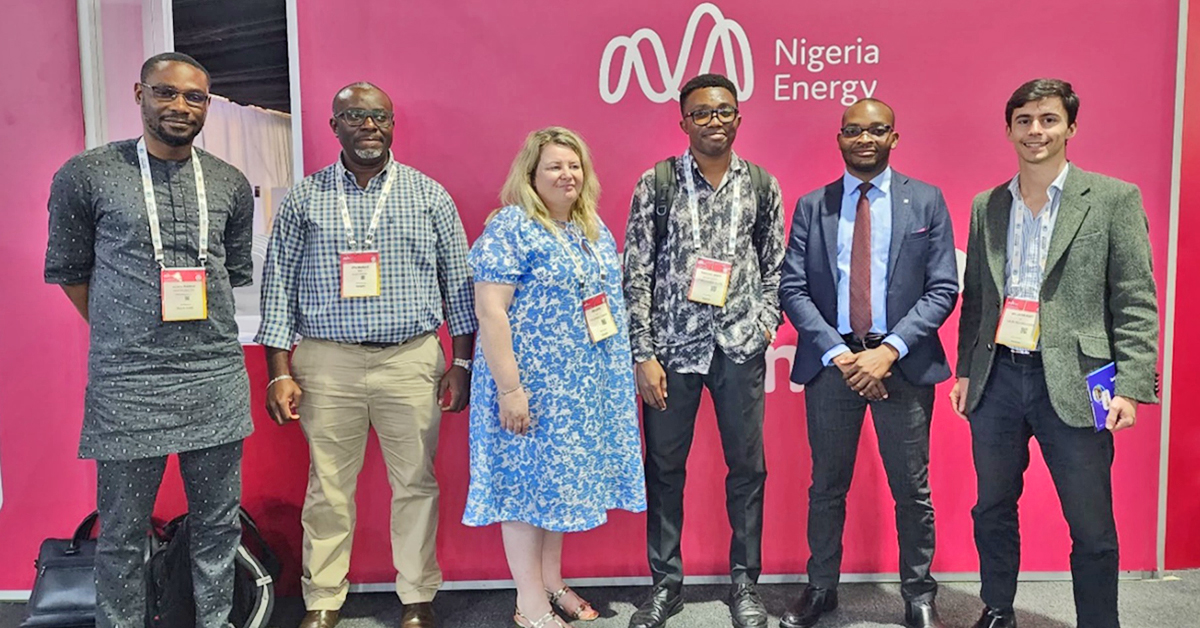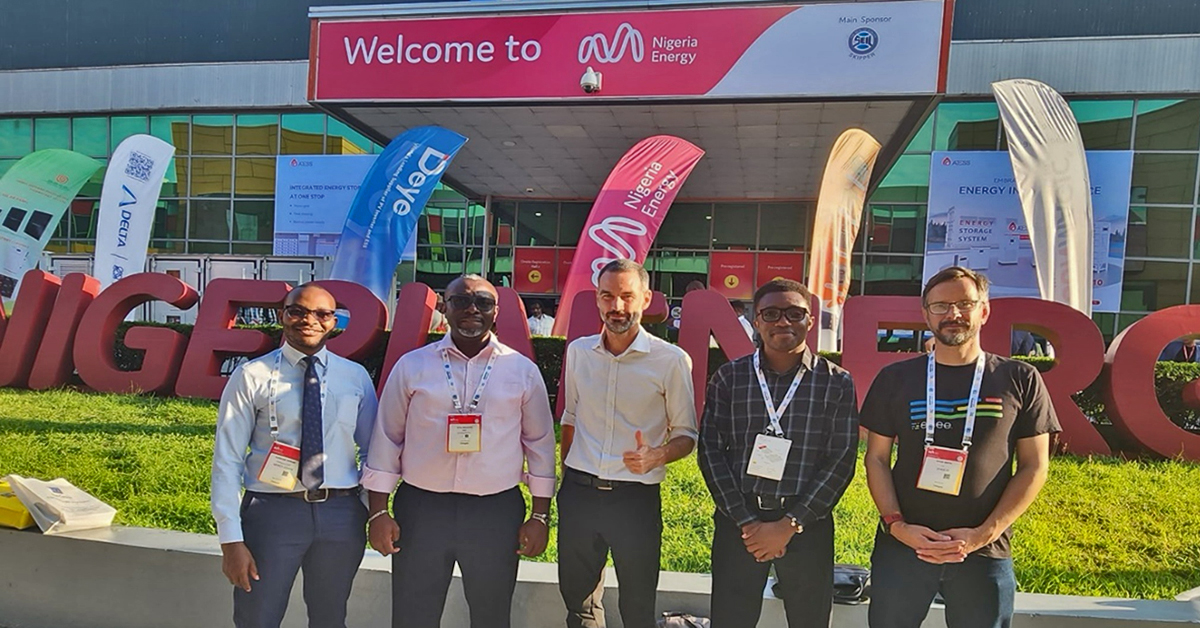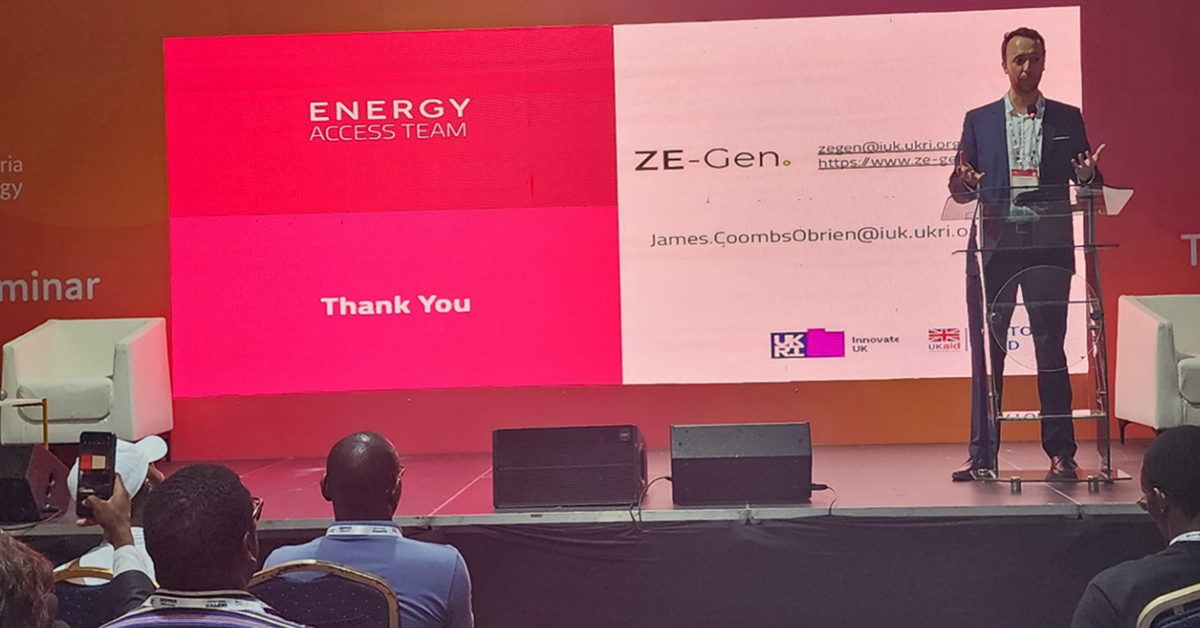Nigeria Energy Leadership Summit: Breaking barriers in the new energy era
The Nigeria Energy Leadership Summit, held from 15 to 17 October 2024 in Lagos, brought electricity sector stakeholders together under the theme of “Breaking Barriers in the New Energy Era: Clean, Reliable, and Sustainable”. This dynamic event outlined pressing energy issues, exploring themes like the need for sustainable power generation that balances profitability with environmental stewardship, and considered the investment opportunity in the national energy transition between now and 2060 (valued at $360 billion by the Nigerian government). Discussions also focused on the financing, policy frameworks, and innovation needed to advance Nigeria’s utility-scale energy projects, whilst also highlighting the potential for hydrogen to contribute to West Africa’s clean energy transition.

With around 8,000 attendees and 150 exhibitors, the summit offered excellent opportunities for collaboration and networking. Among the participants was a delegation of six Energy Catalyst-supported companies: SureChill, Gommyr Power Networks, PyroGenesys, Willend Associates, Azuri Technologies, and enee.io. These innovators, unified by their focus on sustainability and cutting-edge solutions, gained valuable insights into Nigeria’s renewable energy landscape, including current opportunities, challenges and solutions in development. As Arnaud Henin, Managing Director of Gommyr Power Networks, noted: “This high-profile and well-attended event provided ample opportunities to engage with sector stakeholders and discuss the growing demand for renewable energy solutions in Nigeria.”
As panel discussions and wider conversations revealed, the Nigerian and West African energy market offers vast opportunities for clean energy innovators. To fulfil its stated goal of connecting 90% of its population to reliable energy by 2030, and achieving net-zero emissions by 2060, the Nigerian government has put regulation and frameworks in place to incentivise clean energy innovation through a range of mechanisms – including its $750 million investment in the Distributed Renewable Energy Initiative Fund (DRIF). Bolstered by a well-motivated population of young people that value a sustainable future, the demand for solutions like solar and hybrid systems is growing, especially given Nigerians spend approximately $12 billion per year on buying and operating fossil fuel-powered generators.

Key market challenges
At the same time, these markets present significant challenges for clean energy start-ups. The prevalence of outdated technologies in the market tends to slow innovation, while tariff fluctuations and USD-denominated contracts can create financial instability particularly felt by smaller players. Some liquidity issues within the sector, coupled with sporadic instances of corruption, further heighten operational risks. The disconnect between government electricity pricing and private investor interests can undermine economic viability at times, making it harder for some start-ups to scale. In some areas, a shortage of skilled talent can limit innovation and project execution, while a focus on rigid contracts over market-driven dynamics can stifle competition and slow the adoption of new technologies, if not foreseen and mitigated.
Solutions under discussion
Across the summit, various stakeholders proposed solutions to advance clean energy innovation in the region. Public-Private Partnerships can boost infrastructure and energy access, enabling start-ups to tap into private investment and expertise. Expanding renewable energy through mini-grids and independent distribution networks creates opportunities for innovative solutions in underserved areas. Government subsidies further lower barriers for entrepreneurs, supporting growth and expansion. Scalable business models like Distributed Energy Systems (DES) and lease-to-own schemes provide cost-effective alternatives to diesel generators. Improved policy frameworks aligning public and private interests can build investor confidence, while training initiatives can support skills development. Together, these measures are fostering a supportive ecosystem for clean energy start-ups, driving the energy transition in Nigeria and West Africa.

Summit highlights
Energy Catalyst delegates shared several standout moments from the summit. A technical seminar and reception hosted by Innovate UK provided an excellent opportunity to get insights from companies supported by the Zero Emission Generators (ZE-GEN) initiative, which accelerates innovation to build a thriving market for renewable energy-based alternatives to fossil fuel generators.
Etia Ndarake, Managing Director of sustainable project management specialists Willend Associates, appreciated the diverse discussions throughout the event, noting that they “offered strategic insights into government policies, regulatory frameworks, investment requirements, and updates from industry leaders and academia.”
Arnaud Henin, from renewable microgrid experts Gommyr Power Solutions, was particularly interested to hear about the new World Bank-funded Distributed Access to Renewable Energy Scale-Up (DARES) programme, which provides substantial performance-based grants for the solar-home system, productive use, and mini-grid sectors.
Amongst the networking highlights, Guillaume Bigot of Azuri Technologies, a company which develops smart solar solutions, pointed to interesting conversations with renewable energy investment firm CrossBoundary, who are poised to facilitate key partnership discussions for the company.
Energy 4 Impact’s Kariuki Njoroge, who led the delegation, was encouraged by the growing momentum around Nigeria’s clean energy potential. “With 94 million Nigerians lacking electricity, the country presents a prime opportunity for clean energy innovators, driven by its significant energy access gap and supportive policies,” he remarked. He highlighted key initiatives such as the Electricity Act of 2023 and the National Integrated Electricity Policy, which encourage private sector involvement in clean energy and off-grid innovation.
Several additional factors bolster this optimism. Decentralised energy markets enable tailored local solutions, while Public-Private Partnerships are driving much-needed infrastructural investment. Increasing awareness of the environmental costs of fossil fuels, coupled with incentives like the Nigerian carbon market, are set to further accelerate the transition to clean energy. Together, these developments create a fertile environment for sustainable business models that expand energy access and improve living standards nationwide.